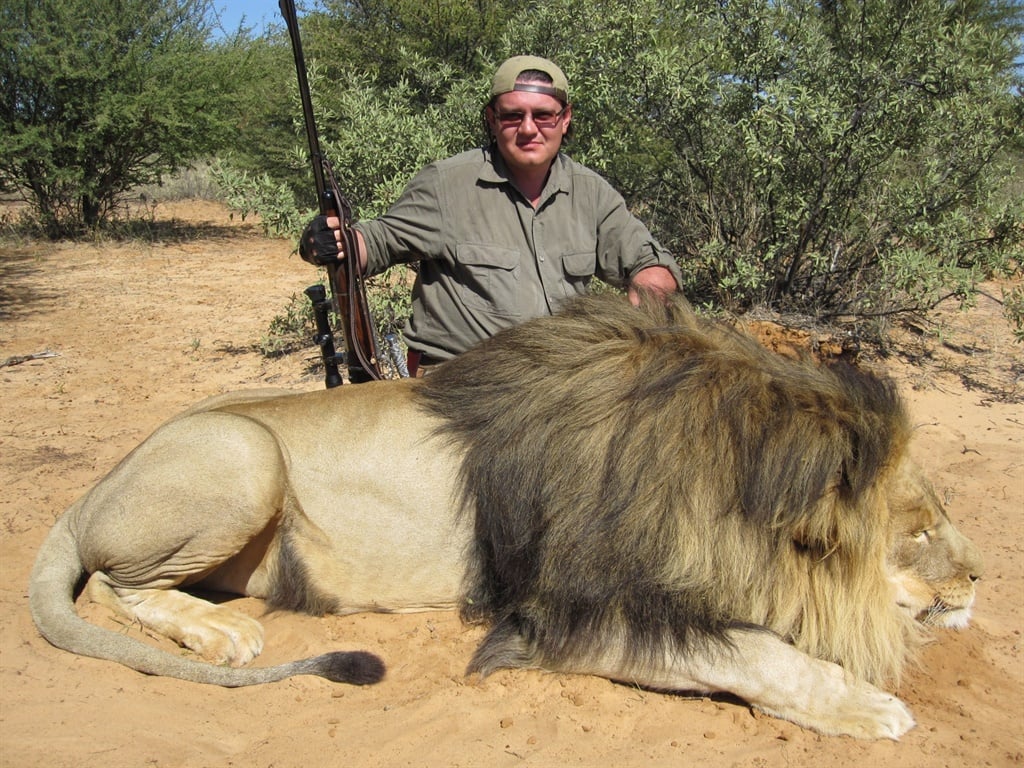
The US will now consider issuing permits to import elephant and lion trophies from South Africa on a case by case basis in the face of widespread condemnation from conservation groups.
In a formal memo last week, the United States Fish and Wildlife Service agreed to allow trophy hunting of African elephants and lions, despite President Donald Trump’s decision last year to uphold a ban on importing elephant trophies from some southern African countries.
The decision comes nearly four months after Trump stepped in to halt his own administration’s decision to again allow hunters to import trophies from elephants killed in Zimbabwe and Tanzania.
The president called such trophy hunting a “horror show.”
The memo also allows for elephant trophies taken from several other African countries such as Namibia, Zambia, and from South Africa this will include trophies of lions and bontebok.
According to the trade database of the Convention on International Trade in Endangered Species of Wild Fauna and Flora, almost 1700 lion trophies were imported into the US between 2014 and 2016 while American hunters have on average imported around 200 elephant trophies annually.
In 2014 the United States Fish and Wildlife Service imposed a ban on American hunters importing elephant trophies from Zimbabwe and Tanzania, which currently has annual elephant hunting quotas of 500 and 50 respectively, as hunting was poorly regulated and did not contributed to the conservation of the species.
Earlier this year, trophy hunting organisations in America condemned the import of lion trophies from South Africa citing that they were mainly from canned lion hunts.
Conservationists were concerned that the reversal of the bans by Secretary Ryan Zinke of the department of interior and a proponent of trophy hunting, which oversees United States Fish and Wildlife Service policy, is ignoring sound conservation practices.
Conservation biologist and environmentalist, Dr Katarzyna Nowak, a fellow with The Safina Center in the United States, says:
“While the Trump administration reverses bans on trophy hunting African mammals, it’s also proposing to sever conservation funding earmarked for species US hunters want to shoot, such as African elephants.”
Trump’s 2018 budget made extensive cuts to already underfunded programmes to aid African nations in protecting elephants, rhinos, lions, pangolins and other endangered wildlife while the proposed budget for 2019, which was unveiled last month, would slash the funding for these programmes by nearly half, from $12 million (about R143 million) to $7 million.
“For African elephants,” says Nowak, “this would mean $1.5 million in 2019, down from this year’s $2.5 million.”
Nowak states that “if the United States Fish and Wildlife Service won’t be allocated the resources to conserve species like elephants, rhinos, tigers, great apes, and marine turtles, how can Secretary Zinke justify expending resources for a case-by-case system of granting wildlife trophy imports?”
Also, she says, “what does ‘case-by-case’ even mean?”
The United States Fish and Wildlife Service and the department of interior have not offered an explanation on the meaning or whether they even have the resources to adopt such as system.
It’s unclear if whether Trump himself supports the new guidelines but a fish and wildlife service spokesperson said cryptically in an emailed statement to the Huffington Post that Trump “has been very clear in the direction that his administration will go.”
“Unfortunately, since aspects of the import permitting program for trophies are the focus of ongoing litigation, the department is unable to comment about specific next steps at this time,” the spokesperson added.
The interior department also announced that it was establishing an international wildlife conservation council to “advise the secretary of the interior on the benefits that international recreational hunting has on foreign wildlife and habitat conservation.”
This has met with severe criticism from conservation bodies.
In a statement the African Wildlife Foundation said: “In establishing the international wildlife conservation council, Secretary Zinke is placing sole emphasis on hunting wildlife, which could have serious implications on wildlife conservation in Africa.”
The public council will hold its first meeting next week on March 16, with registration on March 12.
• This article was used courtesy of Conservation Action http://conservationaction.co.za




 Publications
Publications
 Partners
Partners








